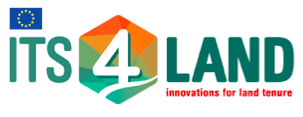 Katholieke Universiteit Leuven
Katholieke Universiteit Leuven
KUL boasts a rich tradition of education and research that dates back six centuries. The university’s basic research orientation has always been and will remain fundamental research. At the same time, the university remains vigilantly open to contemporary cultural, economic and industrial realities, as well as to the community’s needs and expectations. KU Leuven is currently by far the largest university in Belgium in terms of research funding and expenditure (EUR 365 million in 2012), and is a charter member of LERU. KU Leuven conducts fundamental and applied research in all academic disciplines with a clear international orientation. Leuven participates in over 540 highly competitive European research projects (FP7, 2007- 2013). In Horizon 2020, KU Leuven currently has been approved for 47 projects. KU Leuven employs 7,018 researchers on its academic staff (2013). 39% of its graduate students and 36% of its postdoctoral researchers are international scholars (2011-2012). Since 1972 a multidisciplinary team of experts guides researchers in their interaction with industry and society, and the valorisation of their research results (101 spin offs). The KU Leuven Public Governance Institute (Belgium) is an internationally oriented and interdisciplinary research and education institute. The Public Governance Institute strongly focuses on the different aspects of public governance: a) Politics, citizens and policies; b) Administrative organization and HRM; and c) Management of information, performance and finance.
KUL recently expanded its research by identifying ways in which information streams flow within and between public administration and how new information and communication technologies may simplify, streamline and/or adapt the management of these information streams. This aligns directly with the focus of its4land, specifically WP2 and WP7. In addition, the integration of information from multiple sources, and how that can contribute to the enhanced efficiency and effectiveness of service delivery for public authorities, is also investigated. This can also translate into time and cost savings for private companies and citizens when access to the necessary public sector information is provided or required. This focus aligns closely with the planned activities in WP7.

Recent Comments